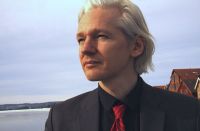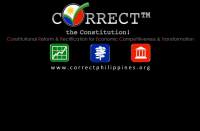While many victims of priest molestation inside the Roman Catholic Church have taken decades to gain the courage to take their stories public, as someone who has never been reserved about admitting to what was done to him as a child, Philippine President Rodrigo Duterte has become an empowering figure for victims of Church abuse throughout the world.
While the abuse of children is an abhorrent crime against nature in all circumstances, there is hardly anything more despicable than someone abusing a position of power, particularly religious power to molest the bodies and minds of the young. Not only is it difficult for children to fight back against such violations, but in the past it has been all too easy to silence children into submission before vicious men who insult the very God they pretend to believe in.
In a recent speech in his home city of Davao, Duterte once again recalled how his abuse at the hands of an American priest in the Philippines shaped his views on religion, faith and the wider meaning of being. The Philippine President stated,
“Something terrible happened when we were young. It’s not really that serious. But fondling while confessing, we were being fondled so when I graduated, I was no longer a Catholic. I was no longer a Catholic at that age. I was not even in politics then.
But I created my own God. After graduation, I created my own God based on the values I have seen like justice — what is justice, fairness — I have always said in Davao, ‘My God is my service to the people’. Period”.
Duterte reiterated that his God is compassionate, rational and kind without being vengeful or harmful towards the innocent. Duterte has helped highlight that while many of his political opponents in both the Roman Catholic Church in The Philippines and in the opposition Liberal party have been quick to condemn Duterte for his frequent criticisms of Church doctrine, history and practices - they have not been so forthcoming in denouncing criminal priests who perpetrate the most heinous acts against the most vulnerable.
When all is said and done what is easier: defending a global institution that retains great influence and power over millions or criticising substantial elements of that institution whose crimes against children still go unanswered in many instances? The answer is clear, and Duterte has shown courage in standing up for the victims against a clear oppressor whose obvious institutional shortcomings have facilitated and frequently covered-up a culture of criminality on a mass scale.
This further exposes the majority of Duterte’s opponents as individuals merely using rhetoric to advance their own careers rather than to expose profound injustices. Duterte like many other prominent individuals could have kept the scars of his childhood private and merely focus on other issues, but in taking the brave step to embrace victimhood as a path to justice and a formative element towards one’s path to recovery, peace and enlightenment, Duterte may well have encouraged others to admit their own victimhood rather than live in a state of psychologically crippling denial.
While misguided individuals and meddlesome organisations call Duterte a violator of human rights simply because he has decided to take a proactive stance against narco-terrorism, he ought to be praised as someone standing up for the human rights of children - the group most in need of protection from harm and exploitation.
In this sense, beyond any and all political considerations, Duterte should be praised for using his position to show that one can overcome the horrors of abuse and give back to society as a whole from a position of respect and vitality. For this alone, Duterte is a hero to the victims and someone who has every right to put the aggressors of both the past and present in their place.



